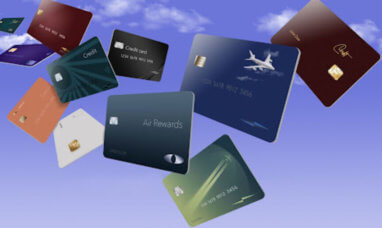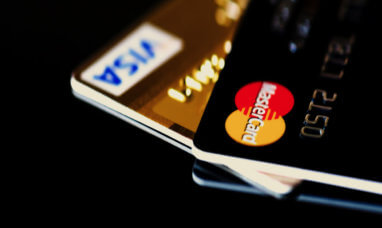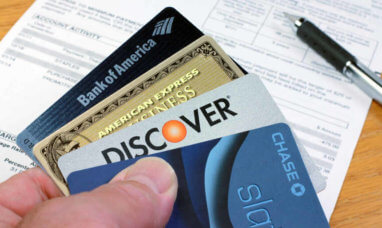Canceling your credit card may seem like a straightforward way to move on to a new or better option. Unfortunately, canceling your credit card can stick out on your credit report and impact your credit score significantly.
While that’s true, it doesn’t mean that it is always a bad idea to cancel a credit card. Before you reach for your scissors, it’s a good idea to get to know some of the pros and cons of canceling a credit card and the right way to do it. That way, your credit won’t take a hit.
Remember, your credit score can impact many parts of your life and financial health. Because of this, you have to be careful when making any changes to your credit, including canceling credit cards.
Should I Cancel My Credit Card?
Before you think about canceling your credit card, the first thing to consider is if you really need to cancel it. Would it be better if you paid it off, put it away, and didn’t use it?
Having available credit on your card and no balance can help improve your credit score. It may also be beneficial in the future if you need to use credit to handle an emergency.
You should know that there’s no need to cancel unactivated credit cards. Also, canceling your oldest credit card isn’t recommended.
While this is true, there are a few situations where canceling your credit card is necessary. You may want to cancel your credit card if:
-
-
- You are still paying the annual fee, but you don’t use the card.
- You are unable to control what you spend, so it’s best to remove the temptation.
- You are getting a divorce or separating from your spouse or partner and closing a shared account.
- You had a joint credit account with someone who is deceased.
-
In these situations, it will make sense to cancel your cards because they cost you money.
Is closing a secured credit card bad? It depends. The card issuer can let you know about the impact it may have if you call.
Guide to Canceling a Credit Card
If you want to cancel your credit card, there are a few steps to the process. Use these steps to cancel your card.
1) Pay Your Remaining Balance
Pay the full balance on your credit card before canceling it. While you may be able to close a card with a remaining balance, it’s recommended that you just pay it all. Doing this prevents you from forgetting about the balance or being charged additional fees.
2) Redeem Your Rewards
If you are canceling a rewards credit card, be sure to redeem any miles, points, or cash back you may lose.
3) Contact the Issuer
Once the balance is paid and rewards are redeemed, begin the cancellation process by calling the card issuer. If you’re still not sure if canceling your card is the right move, you can speak with the representative about your options. But remember that it’s in their best interest to keep you as a customer, so they may try to convince you to keep the card even if it’s not in your best interest.
4) Send the Cancelation Letter
This may seem like a dated practice, but it’s a good idea to send a letter to cancel your card after the call. While the representative on the phone probably closed the account, there could have been a mistake or glitch. You may also need to send a Form 982 credit card debt cancellation notice.
5) Check Your Credit Report
It’s important to stay patient at this point. It can take up to a month for your credit score to reflect that you canceled a card. After you see the closed account, verify that your credit report reflects the fact that the closure was made at your request. If you see a reason like “closed by the issuer,” contact the company to have this resolved. Having this reason listed on your credit report may harm your credit score.
Best Credit Cards of February 2026
Will Canceling a Credit Card Affect Your Credit Score?
There are five factors that impact your credit score. Canceling your card may affect each of these. As a result, your credit score can be impacted.
Here’s how canceling a credit card may impact each factor.
Payment History
Making in-full and on-time payments each month on your credit card will help you build credit. However, if you have trouble paying the balance each month, your credit score will suffer. In this case, closing the card will prevent you from continuously taking out money and making late payments. This prevents further damage to your credit score.
Amounts Owed
The credit bureaus track how much you owe on your credit card accounts to ensure you don’t overuse what you have available. They will look into your credit utilization—how much of your available credit you have used up. Closing your credit card will lower your overall credit limit. So, it will increase your credit utilization rate as your debts will now make up a greater percentage of your credit limits. If your credit utilization rate increases, your credit score may decrease.
Length of Credit History
The longer your active credit history is, the better it is for your credit score. Lenders want to see you have a track record of managing your credit over time. If you close a credit card, it means it won’t get any older and continue to grow. This is also why it’s best to avoid canceling your oldest credit card if possible.
New Credit
Closing your credit card isn’t going to affect your credit score in this way unless you plan to open a new one. However, if you are planning to close your account to replace it with a new one, you should know that every time you apply for and open a new credit card, a hard inquiry is performed. Unfortunately, these hard inquiries into your credit take a few points off your credit score.
Credit Mix
Lenders want to see if you can manage different types of revolving credit. If you want to close one credit card but don’t have another one, it may hurt your credit because you don’t have a variety of credit types on your report.
Bottom Line
You shouldn’t close your credit card unless you have a good reason to do so. Having many credit cards isn’t going to automatically hurt your credit score if you manage them properly and responsibly.
If you do need to cancel a credit card, you should do your best to reduce your balances first. If you can, get them down to $0. This will help you minimize or avoid credit score damage.
It’s also best not to close older credit cards, as this will have a bigger impact on your credit score than newer ones.
Featured Image: Twenty20








